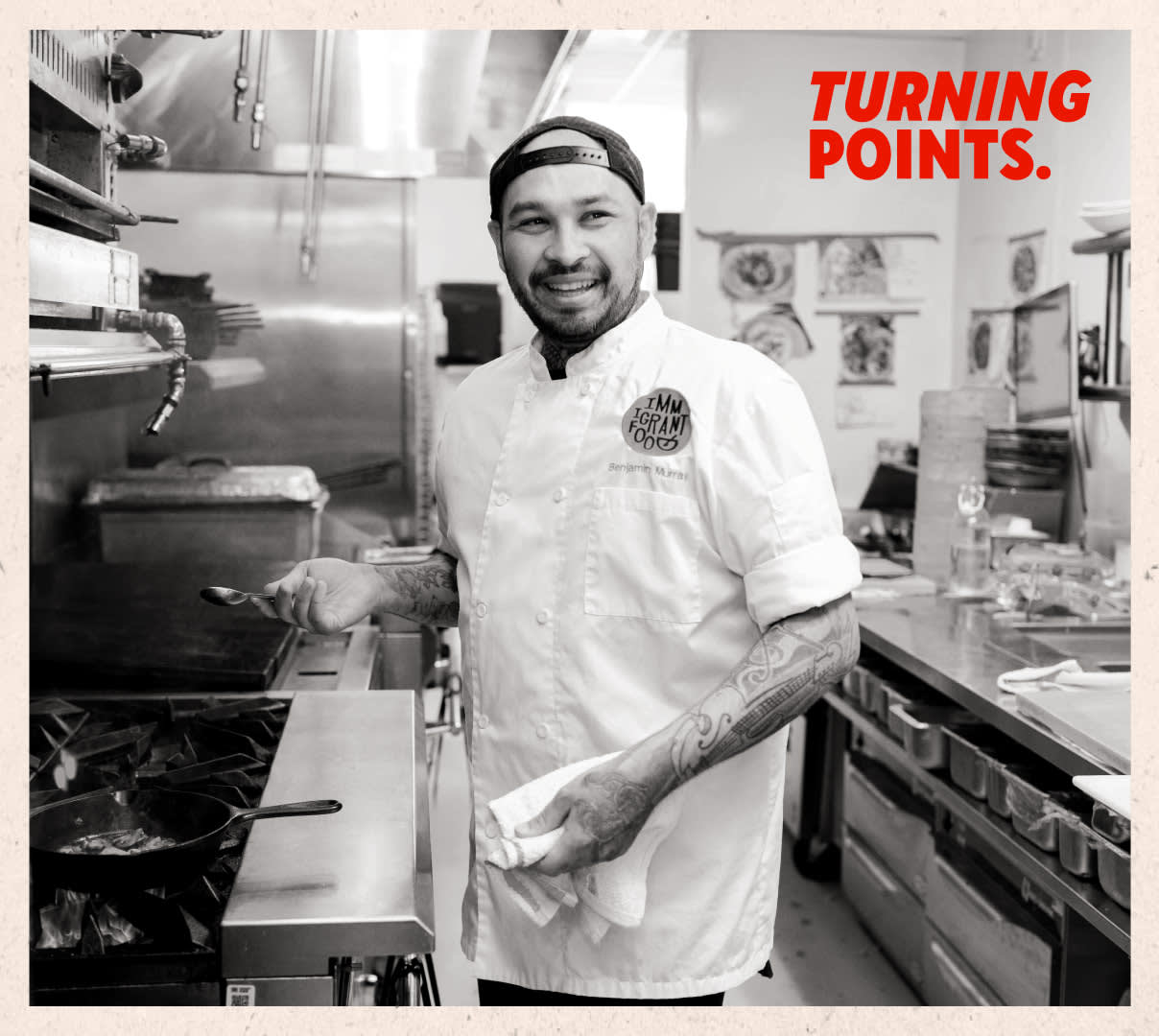Turning Points is an interview series where we invite merchants to share a pivotal moment in the evolution of their business.
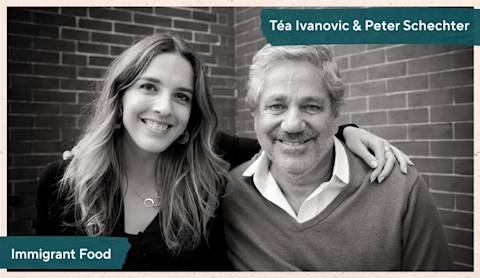
Immigrant Food is a restaurant that celebrates the many cultures and cuisines that make up America, and actively champions newcomers to the country. This was the vision shared by co-founders Téa Ivanovic and Peter Schechter when they launched in downtown Washington, DC. But this was November 2019, and they never could have imagined what the next few years had in store for them. Here, Ivanovic shares the story of how they navigated this critical juncture and ultimately thrived, expanding to three locations with a fourth on the way.
Background | Starting a restaurant for social advocacy
Looking at our professional backgrounds, you might wonder how Peter Schechter and I ended up in the restaurant business. Peter’s known as one of Washington's preeminent global policy experts. I got my start doing strategic communications at an international policy think tank.
What brought us together was our shared passion for social justice and championing diversity. Peter and I are both immigrants. At a time when anti-immigration sentiment was on the rise in the United States, we wanted to take a bold stance. Peter — who has owned a boutique winery, managed a goat farm, and was a longtime board member and investor in José Andrés' restaurant group — saw the food industry as our opportunity to make a strong statement. He recruited me to run the communications side of this new endeavor, and together we came up with the concept of food advocacy, or "gastroadvocacy" as we call it. We use cuisine as a way to celebrate the mosaic of cultures that make up America and to start conversations around diversity, equity, and civic engagement. The restaurant is also a space for people to learn about community initiatives and how to support them.

"What brought us together was our shared passion for social justice and championing diversity. Peter and I are both immigrants. At a time when anti-immigration sentiment was on the rise in the United States, we wanted to take a bold stance."
This is how Immigrant Food began. It originated as a fast casual restaurant located a block from the White House, serving delicious dishes inspired by the immigrant communities that have built — and that continue to build — our country. Our goal was to establish a business with a very focused, powerful social mission embedded directly into its operating model from day one.
Immigrant Food not only celebrates the many cultures and cuisines that make up America, but also actively supports and champions newcomers to the country through our unique approach to food advocacy. It's not a model that’s been done before, and we’re building it as we go, but it's been immensely rewarding.
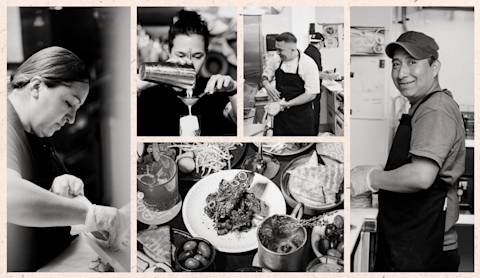
Challenge | Pivoting to a new restaurant type
Unfortunately, November 2019 turned out to be a terrible time to open a new restaurant. Within a matter of months, many businesses were forced to let go of their staff, as they were unsure when — or if — they would be able to resume operations.
In order to keep Immigrant Food open for business when there was almost no foot traffic, Peter and I handled nearly every facet of running the restaurant. I worked 14-hour days, seven days a week, handling everything from washing dishes to keeping the books. It wasn't long before my role went beyond communications director to overseeing management, operations, and finance.
Reaching customers at that time was a real concern. We were a brand new business and hadn't had a chance to establish a reputation or earn customer loyalty. And when people were staying at home and ordering delivery, they were naturally gravitating toward restaurants they already knew. Nevertheless, Peter and I knew we had to offer delivery to remain viable, and for a while we were the ones making deliveries to residential areas on our vespas.

"We had to decide whether a fast casual business model was the best fit for Immigrant Food. As sit-down, dine-in service made a comeback, Peter and I knew we had come to a turning point."
We reached a pivotal moment when we had to decide whether a fast casual business model was the best fit for Immigrant Food. Back when we started the restaurant, it was really takeout-based — customers stood at the counter with a buzzer and waited for their orders to be prepared, and we served our dishes with disposable plates and cutlery. But as sit-down, dine-in service made a comeback, Peter and I knew we had come to a turning point.
Approach | Taking inspiration from fine dining
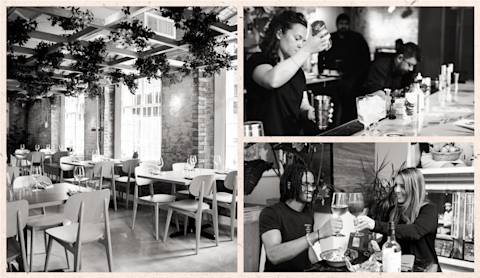
We didn't want to reopen as a fine dining establishment, but we wanted to be experiential — the type of business where people love the setting and the vibe as much as they love the menu. We invested in real dinnerware and napkins and redesigned the restaurant layout. And we soon realized that our new operations were actually a lot more aligned with our original purpose. When people were coming through our doors and spending time in our space, we could better engage with them and advance the advocacy side of gastroadvocacy.
Throughout this business transformation, we had the support of our board of directors and investors who believed in our vision, and May 2021 saw the debut of our second Immigrant Food location in the Union Market District. After that, we had the pleasure of partnering with the founders of Planet Word to launch our third location in their new museum in October 2021.
Result | Finding the right partner in DoorDash
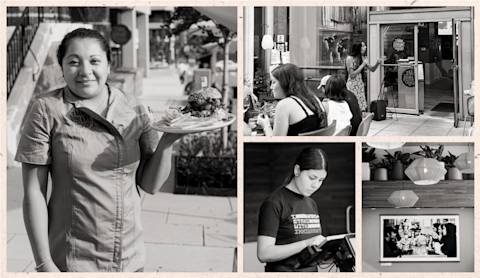
Our new business model helped us reach new customers and build our fan base — but third-party delivery helped take our restaurant to the next level. Our team chose to partner with DoorDash for a few key reasons. DoorDash Marketplace allows us to place our brand in front of customers who may not have known about us. And DoorDash Drive On-Demand (through DoorDash's Toast POS integration) lets us accept and process online orders on our own website, but tap into the Dasher network to make deliveries.
Initially, there was a logistical learning curve to delivering some of our offerings — from finding the right containers for certain dishes, to figuring out which items deteriorated when packaged and transported. As a result, we were reserved in our first DoorDash rollout, and only provided delivery during lunchtime. But once we had identified and resolved all potential issues, it was full speed ahead and we added dinnertime delivery as well.
During 2023, we finally got to measure how our restaurants perform in a regular year, and the results were amazing. We saw year-over-year overall growth of 33%, and all of our locations saw profitability in the mid-teens. Looking at our DoorDash business from 2022 to 2023, our sales increased 5% , our average check size increased 5%, and our average weekly sales increased 10%. Today, we generate about $1,500 in sales each week on DoorDash.
It's a great proof point for our gastroadvocacy concept, and also incredible validation for our vision of finding a middle ground between fast casual and fine dining. We can be both accessible and exceptional.
10%
year-over-year increase in average weekly DoorDash sales
$1,500
average weekly DoorDash sales
5%
year-over-year increase in average DoorDash check size
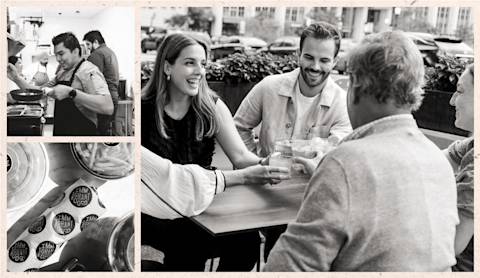
Big prospects for a purpose-driven business
Today, Immigrant Food operates three locations, employs approximately 85 full-time and part-time staff, and partners with five fantastic nonprofits that are doing important work everyday to support immigrants and their families. Our "engagement menus," featured alongside our food menus, are lists of worthy causes customized for each space we operate in to help our patrons discover how to volunteer and contribute right in their local community. And that makes our gastroadvocacy an extremely scalable model — the work we do can be done anywhere, and our goal is definitely to expand beyond Washington, DC.

"Our engagement menus are customized for each space we operate in, helping our patrons discover ways to volunteer and contribute to worthy causes right in their local community. And that makes our gastroadvocacy an extremely scalable model — the work we do can be done anywhere."
We've already taken the first step towards achieving that goal. This summer, we're opening our fourth restaurant, across the bridge in Ballston, Virginia, which offers an incredible new opportunity to advance our gastroadvocacy mission. Our new restaurant will share the same building as The Nature Conservancy, one of the world's most prolific environmental NGOs, so we can incorporate themes of sustainability and stewardship into our programs and menus.
We also launched our first crowdfunding campaign in March of this year, which has already exceeded our expectations. Unlike traditional crowdfunding, our equity-based campaign means investors are not just supporters, but part-owners of Immigrant Food. For anyone interested in joining our mission to support America as an immigrant nation, you can invest here.
These are exciting times for Immigrant Food, and they wouldn't have been possible if we had let the uncertainty of the last few years defeat us. So while it's always important for entrepreneurs to be prepared before opening a restaurant — create a sound business plan, secure funding, be realistic in your earnings projections, and take stock of possible challenges — you also have to accept that you can't foresee everything, and you can't be afraid of failure. Sometimes you have to take a leap and know that you'll learn, persevere, and grow as you go.
Ready to grow your business with pickup and delivery? Sign up for DoorDash today.
